Laurence Guy: "I couldn’t go back to Logic. The plugins are better and it sounds more polished, but it’s more fun working in Ableton"
House producer Laurence Guy tells Danny Turner why his first vocal-based album is the one he always wanted to make
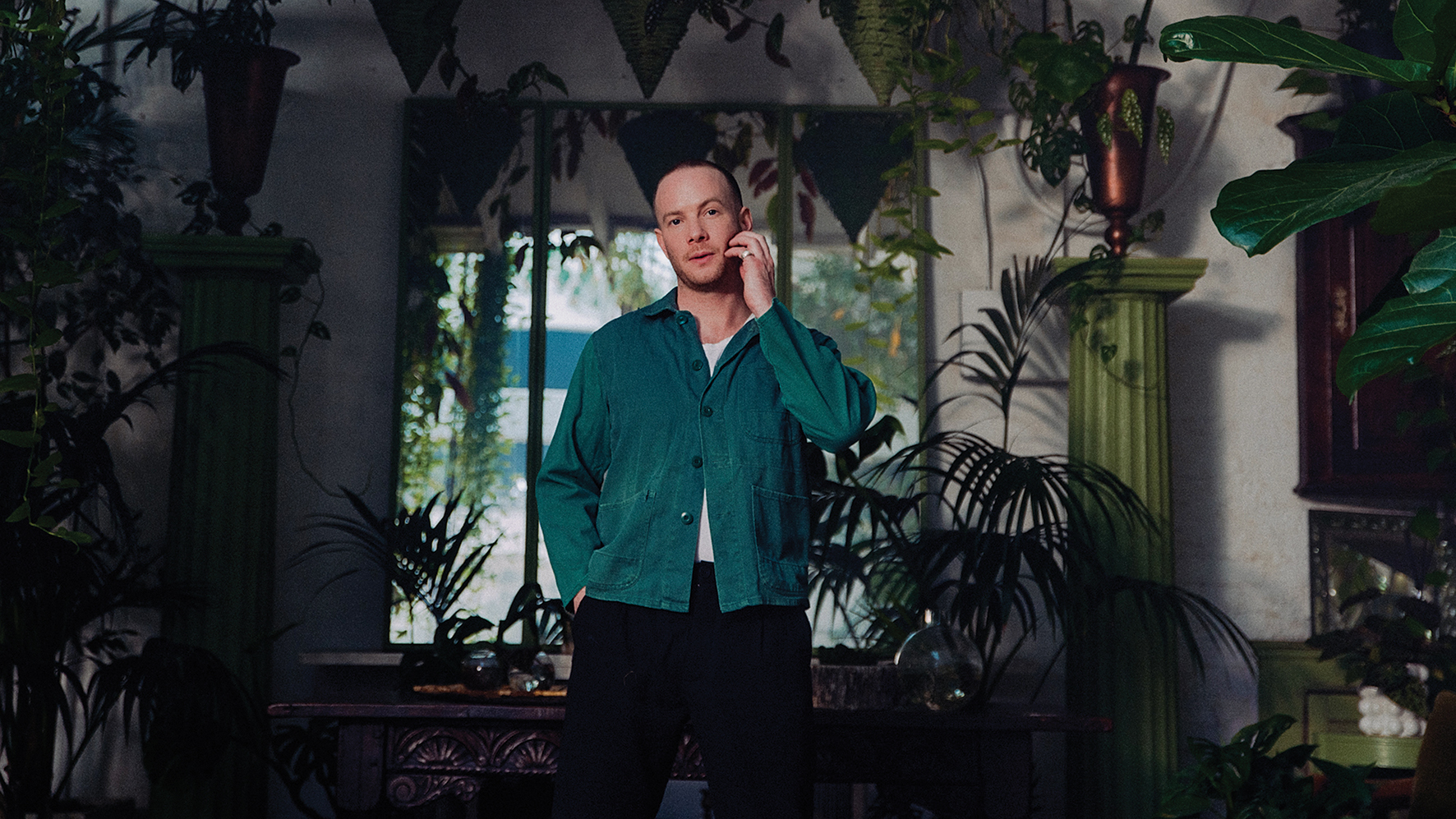
Want all the hottest music and gear news, reviews, deals, features and more, direct to your inbox? Sign up here.
You are now subscribed
Your newsletter sign-up was successful
Acclaimed within the contemporary house scene, Laurence Guy’s productions have been praised for their sophisticated fusion of grassroots genres. Received with enthusiasm by clubbers and network radio alike, despite cutting his teeth on the UK rave scene, Guy’s instinctive ability to appeal to mainstream audiences has seen him light up iconic venues such as Printworks, Glastonbury and L’Olympia in Paris.
However, while the house producer’s singles have been heavily oriented towards the dance floor, his two albums to date have shown a far more experimental side. His latest LP, Living Like There’s No Tomorrow, But Killing Yourself In The Process hosts a myriad of vocal collaborations infusing elements of rap, hip-hop and spoken word. By continually questioning what a house producer ‘should’ do, Guy once again pushes his sound into new creative directions.
Living Like There’s No Tomorrow, But Killing Yourself In The Process is a very lengthy and philosophical title. Is it autobiographical?
“It’s definitely autobiographical, but other than the first few tracks pretty much every tune I’ve made has used titles to specifically achieve that. For this album, the phrase itself was going around in my head a lot until it started to make sense. It could mean a few different things, but for me it’s about that line between hedonism and self-destruction. A lot of the things I’ve been doing in my life were under the guise of trying to live it to the fullest, but they were also potentially shortening my life later on. Eventually, I had to question whether being a bit calmer might be a better way to go about living.”
Presumably, you’re referring to the DJ lifestyle?
“Yes, but it could also be applicable to any activity you do to an extreme. You can take anything that may be fun or considered good and turn it into something that’s not so good. In my case, it’s about the whole clubbing lifestyle, staying out every weekend and similar things that I love to do. Every now and then I get hit by the idea that maybe it’s not the best idea to do those things all of the time [laughs]. Making music is a good way for me to balance my brain, which is maybe why my music is, not melancholy, but fairly chilled with a bittersweet sound.”
Do you primarily see the album as a house LP designed for clubs and post-party environments?
Want all the hottest music and gear news, reviews, deals, features and more, direct to your inbox? Sign up here.
“There are a couple of classic house tunes on there, but it’s definitely not a club album, it’s more of an after-party album for people coming back from clubs early in the morning. There are lots of different tracks on it, but they all share a similar aesthetic that’s more suited to home listening. I’d like to think it’s one of those LPs that’s engrossing and lives in a world that you can get lost in.”
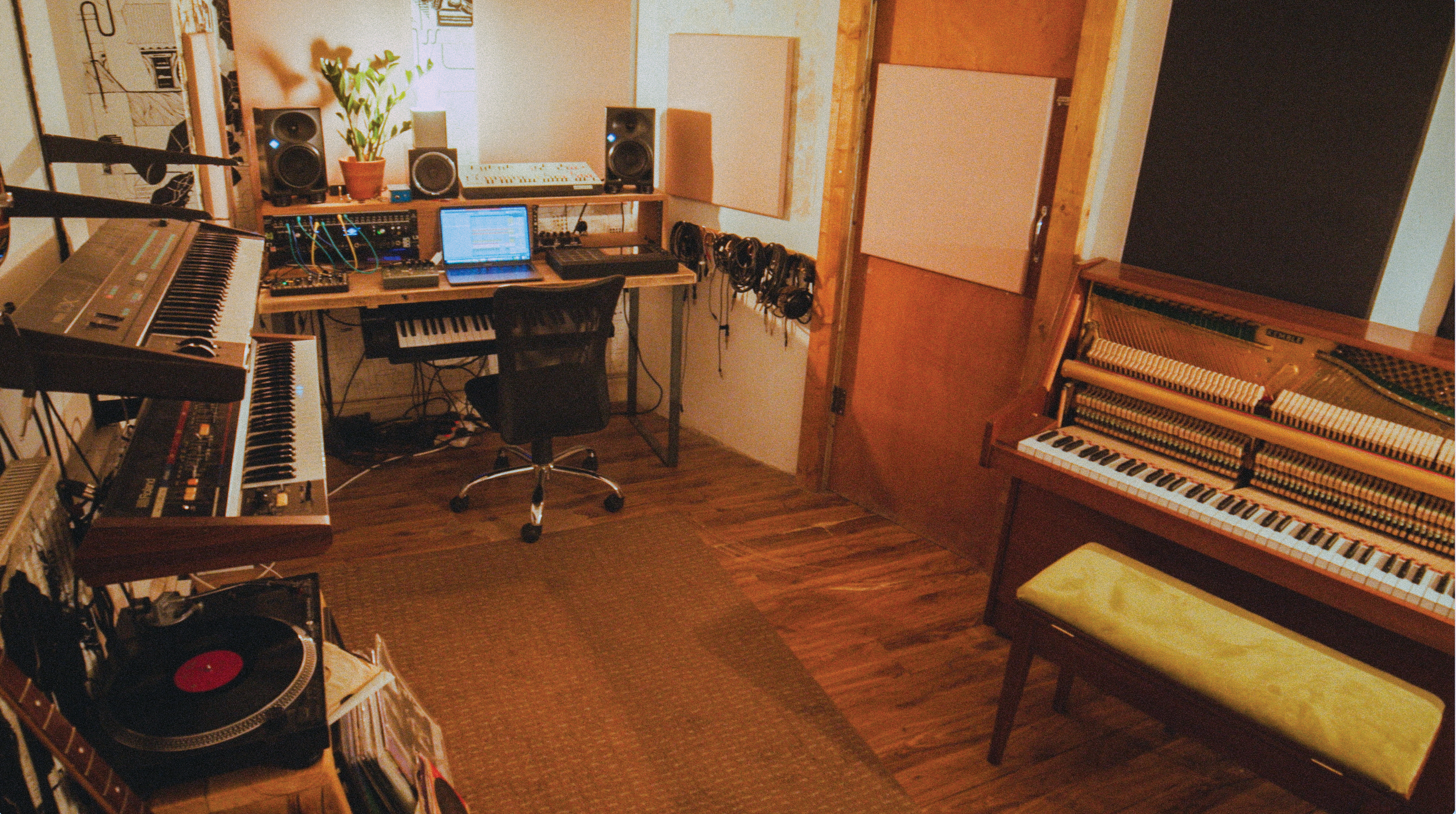
Being a DJ, that ‘morning after’ feeling probably means more to you than it does for most people. Do you ever really get used to that lifestyle?
“I love the feeling of playing at a club until six or seven am – those hours are tiring but always seem the most magical to me, which can be a bit frustrating because you don’t want to miss out on those moments but you really need to go to bed. But I love travelling back from a club when it’s still light because it reminds me of some of my favourite moments in life. You never really get used to that adrenaline and if anything it feels more amplified and surreal as you start to play at bigger crowds and venues. That polarity is such an unnatural feeling that I’m not sure you can ever get used to it.”
Your tracks have always sat in that sweet spot of being club-friendly yet radio-friendly, which must be beneficial in terms of having more routes to exposure?
“With the older Laurence Guy stuff I was really focused on making dancefloor house tunes, but for some reason they got picked up by the world of radio. When I wrote the first album, Saw You For The First Time, I thought I’d written a load of bangers but people seemed to think of it as a chilled album. Maybe I was confused about what a banger actually is, but my music always seems to come out sounding the way it does regardless of anything pre-conceived. This album is basically an attempt to make the sort of music I’ve always tried to make but could never manage to consistently.”
Has that been a source of frustration in the past?
“If you’re trying to make a hip-hop track you might start by copying other people, but it takes many years before you feel comfortable putting your own stamp on it. For me, it feels like a really natural progression, although it might not be for the audience because they haven’t seen me go through that whole process. It’s taken me many years to make music with different genres and tempos that still sounds like me rather than an imitation of someone else, but I’ll probably have to do an EP of classic house stuff next just to reset the balance in my head.”
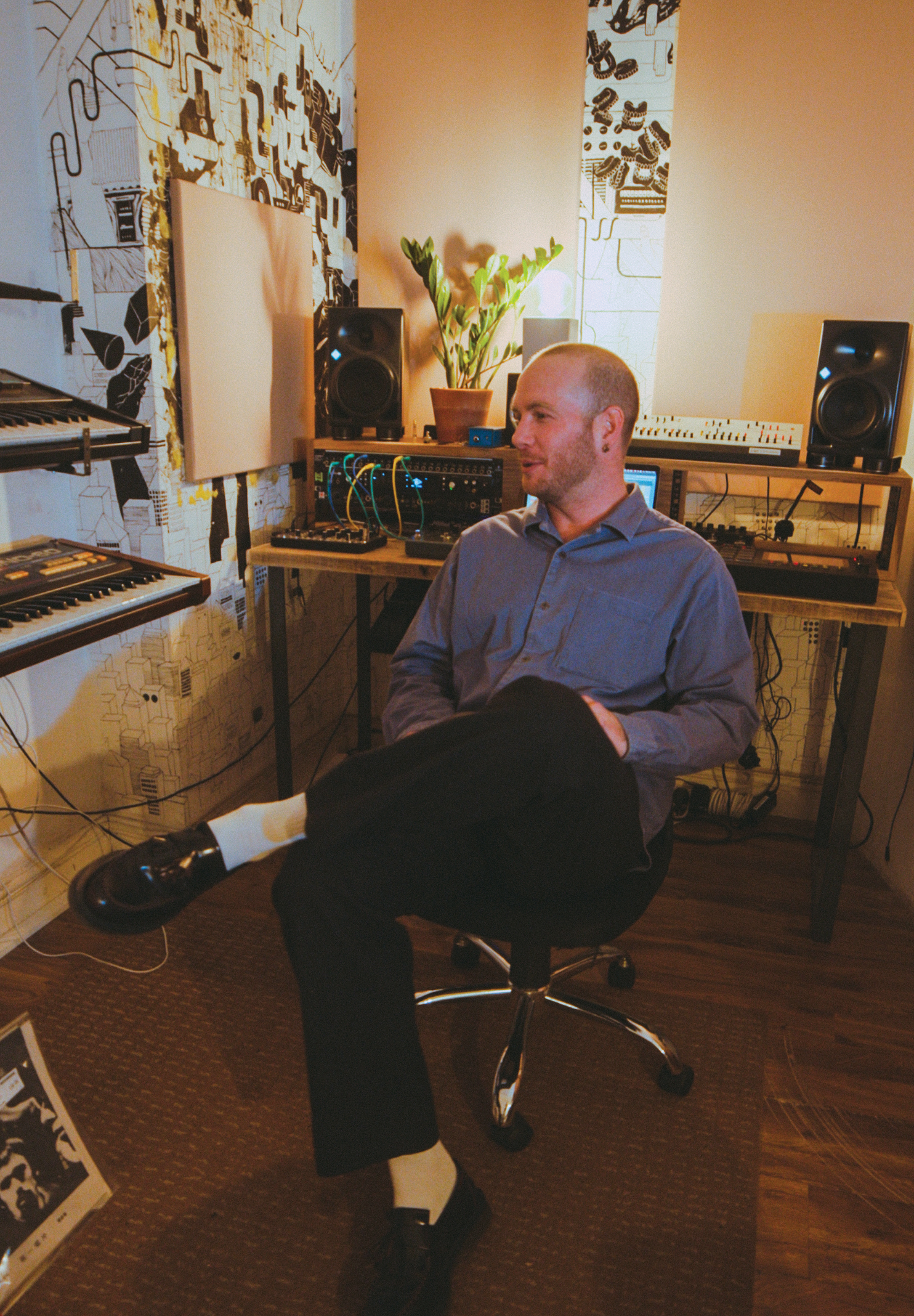
We interviewed Sebastian Mullaert recently and understand that you’re part of his whole Circle of Live family. What does that entail?
“That started because we have the same manager. In my head I probably wasn’t quite ready for it or sure about where I was when it came to performing live and was thrown in at the deep end. I played synths and used some sample stuff during one of the Circle of Live session jams, which was really fun, and hopefully we can start doing that again because Sebastian is an amazing live performer who’s totally comfortable in that environment. I’d potentially be keen to get involved in the educational aspect of the platform too, but I’d have to work out what to do and how to teach, and probably discover all the bad habits I’ve picked up when it comes to making music.”
As mentioned, the new album is much more expansive than your singles and EPs. Did you feel like you were scratching an itch?
“It definitely felt that way. With both albums I’ve done, instead of picking tracks I’d already made, I decided to pick a date and have everything made from that point go towards the same pool of ideas. That meant I was freer to make the kind of music I wanted to make and wasn’t worried about whether an idea was two minutes long or something very basic. That felt quite liberating because I didn’t feel I had to make full tracks and short, minute-long skits can be the most fun to create.
“Everything went into a folder and then I went to a studio for 10 days to develop those ideas with musicians and spent another a week after that with an engineer going over the recordings and coming up with new ideas. Because I knew that the process would go through different stages, I could be completely creative in the first stage and not have to think about arranging, editing or anything else.”
Did you always want to make an album with lots of vocal-led tracks?
“I definitely wanted to have a lot of vocal collaborations on there. On the first album I worked with Steve Spacek on the track Drum Is A Woman and really wanted to explore that further. The new tracks were already written before I sent them to a vocalist, so I had a pretty clear vision of how I wanted them to sound and who I wanted on them.
“Luckily, in every case, the first idea that the vocalists came back with was the one I used, so there wasn’t much back and forth and it all seemed to work out really well. The only track that was written in the studio was Reflections, which was finished a couple of weeks prior to the album deadline.”
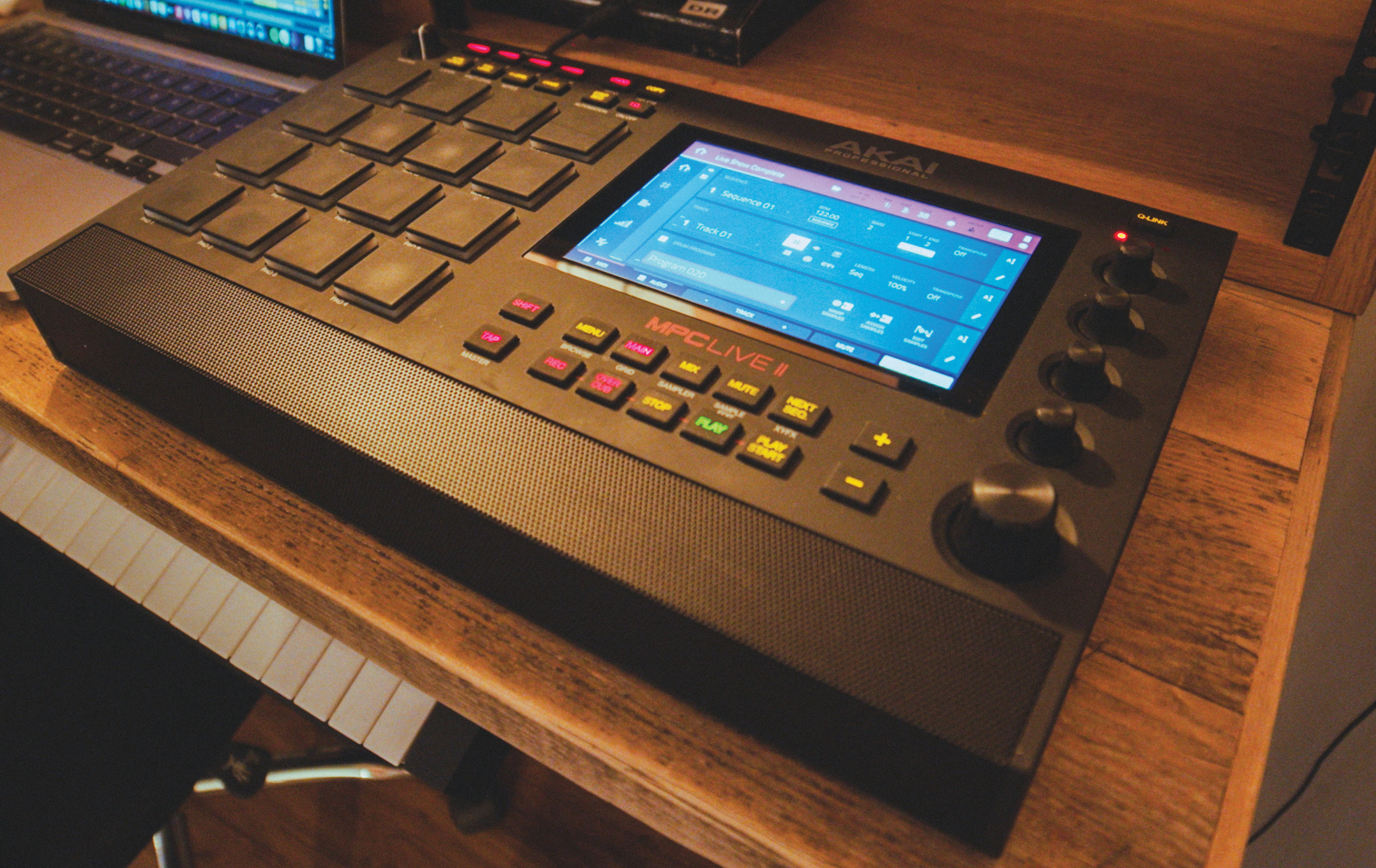
The vocals themselves are quite varied, ranging from rap to spoken word and more traditional songwriting styles. Did you feel as if you were almost writing for a new audience this time?
“I wanted to make sure there were some classic Laurence Guy-sounding tracks on there for the older fans, but there was also a feeling of trying to expand or scale things up as much as possible. Because there are so many collaborations, it felt like I was working on a proper album rather than making an LP in a bedroom at my mum’s place, but hopefully everything still sounds like me.
“Because I was so focused on what I was actually doing, I didn’t think about how the album would be perceived until I released it, but you don’t have any control over that and it would be a mistake to think about that sort of thing beforehand. I still love making dance music, so as long as I can straddle both styles it’s all good.”
What can you tell us about some of the vocalists who feature on the album and how you worked alongside them?
“Scenes I See with Miller Blue was recorded in the studio after sending him the track; otherwise most of the vocals on the album were recorded remotely. Deem Spencer was in New York, so I sent him the beat for Untitled and he came back with an idea, and it was the same for Chester Watson who’s based in Miami for the track Ways. Jamal Buchanan came into the studio after initially working on Let The World Know remotely, too.
“The potential advantage of having someone in the studio is that if you have a really good chemistry you might come up with more ideas or something unexpected, but in this instance the remote thing seemed to work well because they all sent something back that I liked and there was no problems inserting the vocals into the tracks.”
If you’d received a vocal that you weren’t so keen on, would you force it to work or find a diplomatic way to decline it?
“If the idea wasn’t working then you’d have to relay that and ask if they’d like to try something else. If they don’t feel they can come up with another idea, then you might just have to leave it but you’ve got to be sensitive to the fact that they’ve probably tried several ideas already and the one they sent is the one they really like. What you don’t want is for the process to feel forced because that’s probably bad for you and bad for them.”
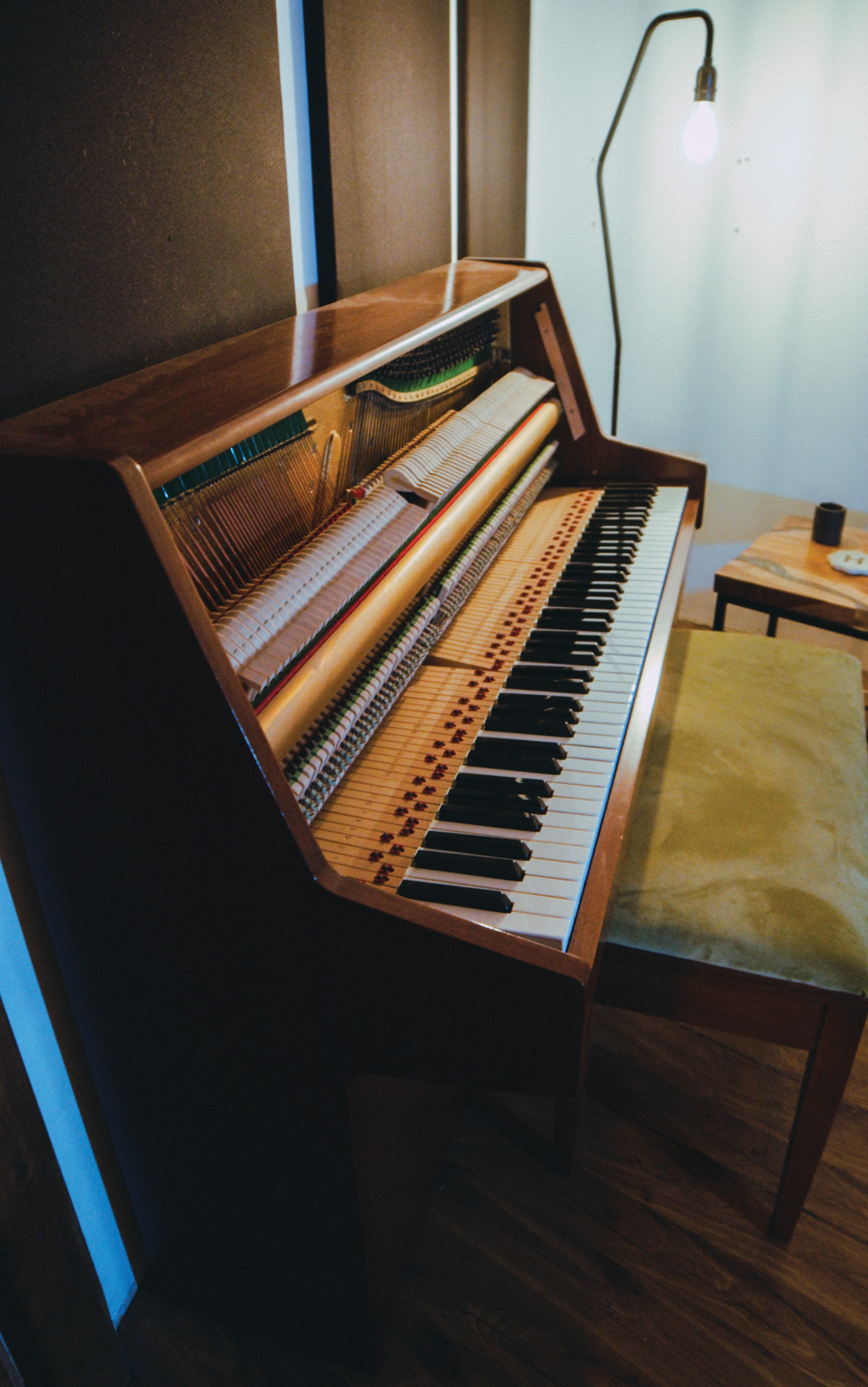
Do you have to let go of your ego when your tracks now contain someone else’s lyrical narrative?
“It’s weird, but on the tracks I did with Miller, Jamal and KiLLOWEN, the lyrics really resonated with me even though it wasn’t my narrative or story. I didn’t guide them at all, so I’m not sure if that was a happy coincidence or because l sent what I’d recorded for the album beforehand and they just naturally related to the themes that were already on there.”
Vocals and lyrics typically draw people’s focus away from the music. In those instances, was the idea to write tracks that left space for vocal contributions?
“The tracks were definitely a lot more minimal than the ones I’d written before, which made me realise that you don’t actually need that much to make a tune work and maybe I’d been over-egging things in the past.
“In theory, if you’re happy with a beat and no vocal then the track should be even better when a vocal is added, so I essentially made a beat with a bassline, main sample idea or piano riff with the idea of having fewer elements but enough for the vocalist to go on. Vocals are typically led by the melody, so you don’t necessarily want a vocalist to be guided by that, and I removed a lot of drums, percussion, melodies and other things that tend to fill out the sound.”
On the topic of samples, you’re known for being a crate digger. Are you still sampling from vinyl to help bring ideas into focus?
“I like to get them from charity shops, public sales and second-hand record shops, so I’m constantly buying all kinds of random stuff. For this album, I was living in Bristol in a spare room that looked out onto the street, so I’d go to the local shop to buy a bunch of old records, put a kick drum on loop and drop the needle at different points to build a track up in layers, playing the melodies in at some point after. There’s no particular reason for doing things that way because you can emulate that whole process with software – it’s more about the sentimental attachment of the records and the samples.”
Is part of that process about creating a diary for you to look back on?
“Definitely. I want to be able to pick a track from an album and remember where I bought a record that I sampled. I also like that a record has already been owned by somebody else or that I’m repurposing music that someone else wanted to express 20 years ago. It doesn’t make a difference to the sound of the music, but I feel that it adds extra value and documents my life in some way.”
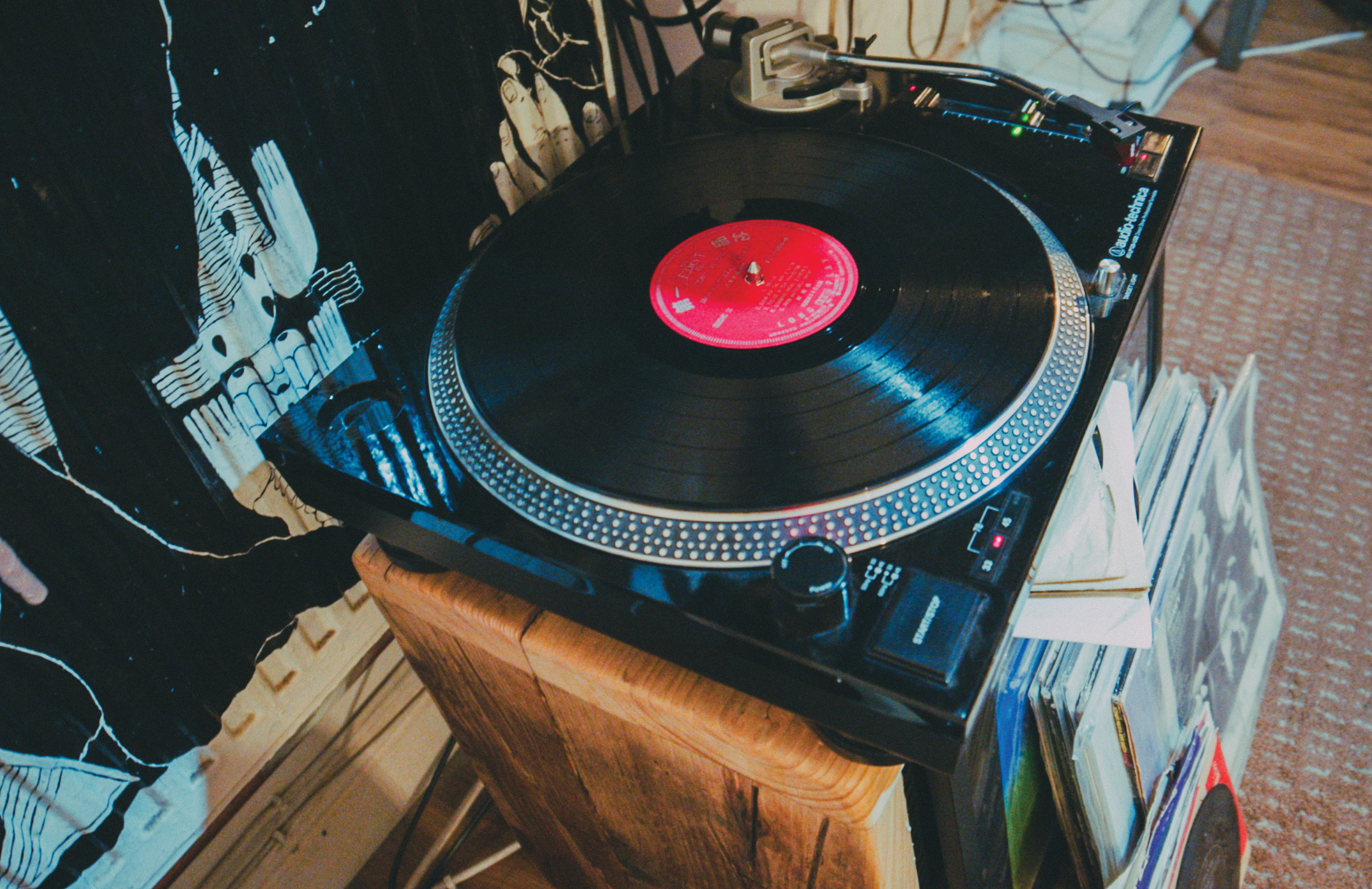
What might attract you to a particular record?
“I’ve been doing this for so long that there are tell-tale signs that allow me to gravitate towards something that might be good. If it’s a progressive rock record, for example, by looking on the sleeve you might see a list of all the synths that were used or come across a certain keyboard player that you recognise from a previous record you’ve sampled. You can use these things to guide you, but I also like to add a bit of chaos by picking a few random LPs.”
Some people might be surprised to learn that your music is full of prog rock samples?
“The prog rock albums are sometimes the best because the record labels gave those bands a lot of money to make albums with so the artists always had amazing equipment, tracks are often super long and there are always weird synth parts and cool shit on them.
I’m mainly using piano and samples along with some other in-the-box tools. I’m not really a hardware enthusiast
“Sometimes I’ll drop the needle quickly and other times I’ll listen through whole albums, chop stuff up and put them into my sample library to make sample instruments in Ableton’s Drum Rack. That means when I’m making music I’ve got a whole list of preset samples that I can quickly pick to see if I can pitch or harmonise different elements together.”
What albums have you stumbled on over the years that have really surprised you?
“A big album that I’d never really listened to until last year was Frank Ocean’s Blonde – the beats on that are crazy. I also really like The Avalanches’ second album, Wildflower. Their debut album, Since I Left You, was also a big influence in terms of me getting obsessed with sample-based music.”
Because you predominantly use samples, would it be fair to say that most of your productions take place in the box?
“At the moment, I’ll write a lot of stuff in Ableton from the sofa at home and then twice per week go into a studio that I rent near to me. I live on a super hectic road in East London and it’s not really possible to concentrate on what I’m doing, so I’m kind of paying for the sound proofing and peace and quiet. I share my room with my older brother and the main setup is a turntable that goes directly into my soundcard, an upright piano and a Roland Juno synth, but I’m mainly using the piano and samples along with some other in-the-box tools. I’m not really a hardware enthusiast.”
If you’re not feeling especially creative, will you do a completely different activity for the day or something studio-related?
“If I sat in a studio for nine hours a day I probably wouldn’t be able to come up with anything, so I find it’s better to come up with ideas while I’m doing something else and make sure that I’m always in or near the studio or have my laptop with me. I basically need to be ready to write something at any time and find that having set routines really helps with that. If I’m not feeling it, there’s always other stuff to do, but I’ve lost discipline lately so I’m probably going to have to spend more time organising my sample libraries or playing piano.”
What was your approach to sequencing prior to arriving at Ableton?
“The first thing I used was Hip Hop DJ, which was a program or game that allowed you to drag and drop loops from different genres. I then went from Fruity Loops to Logic but found Ableton to be a lot easier in terms of sampling and manipulating audio.
“I definitely couldn’t go back to Logic. Even though the plugins are better and it sounds more polished, it’s more fun working in Ableton and its warp markers are super-powerful. I love how you can manipulate a sample so much that you can’t even tell if it’s been quantised.”
Are you using any other plugins in your productions?
“I like Soundtoys’ Decapitator and EchoBoy, which is probably my favourite plugin because you can use it as an echo or tape saturator and it sounds really good on drums. Waves’ Scheps EQ is the only EQ I use and Spectrasonics’ Keyscape is really amazing. If you combine that with EchoBoy you can make it sound like you’re playing a really convincing upright, grand or electric piano. Since 2020, I’ve been working with a mix engineer so I can concentrate on ideas without having to focus on everything sounding so polished.”
Did you need a mix engineer to help with all the vocal contributions?
“I’m not sure how it came about. Somebody told me it would be a good idea to have one and they were right because the results are so much better and you don’t have to worry about mixing as you go. As you mentioned, for this album I didn’t really have the knowledge to work with vocals. It was either do it myself badly or let go and give that part of it to a specialist. You have to drop the ego sometimes. Just like a vocalist does the vocals, a mix engineer knows more about mixing and the idea is to put it all together to create something that’s better than the sum of its parts.
I’ve been working with a mix engineer so I can concentrate on ideas without having to focus on everything sounding so polished
“In dance music, not mixing your own records is probably frowned upon but it enabled the album to open up and go above and beyond what I could have expected. I sat with the mix engineer every day for two weeks, so I was still very hands-on and it was really fun to learn about all the different stuff you can do.”
Did you guide your mix engineer towards a particular production aesthetic? For example, we read that you’re a fan of Dua Lipa...
“I love the way her records sound and couldn’t get enough of the album Future Nostalgia. The writing and production on a lot of pop music is really impressive in terms of how sounds can be distilled into something that’s perceptively simple. You might hear the hook on a pop tune and think it sounds really easy or there’s not much going on, but that’s never the case.
“I’ll also discuss things with a mix engineer in terms of what’s realistic. For example, I wanted to include a lot of disparate mix references like Steely Dan, Alix Perez and Daft Punk’s Homework, but you can’t be all these different things at once.”
The final track For John & Eileen pays tribute to your grandparents. Why did you feel a need to do that?
“The piano part was recorded on the piano that my grandparents gave to my mum, which was then given to me and my brother. They both died in the last four years and my gran was always buying my CDs and highlighting album reviews in the paper. They lived on Orchard Road, which is also a track title on the first album. There will always be nods to them on my records; they were my biggest supporters.”

